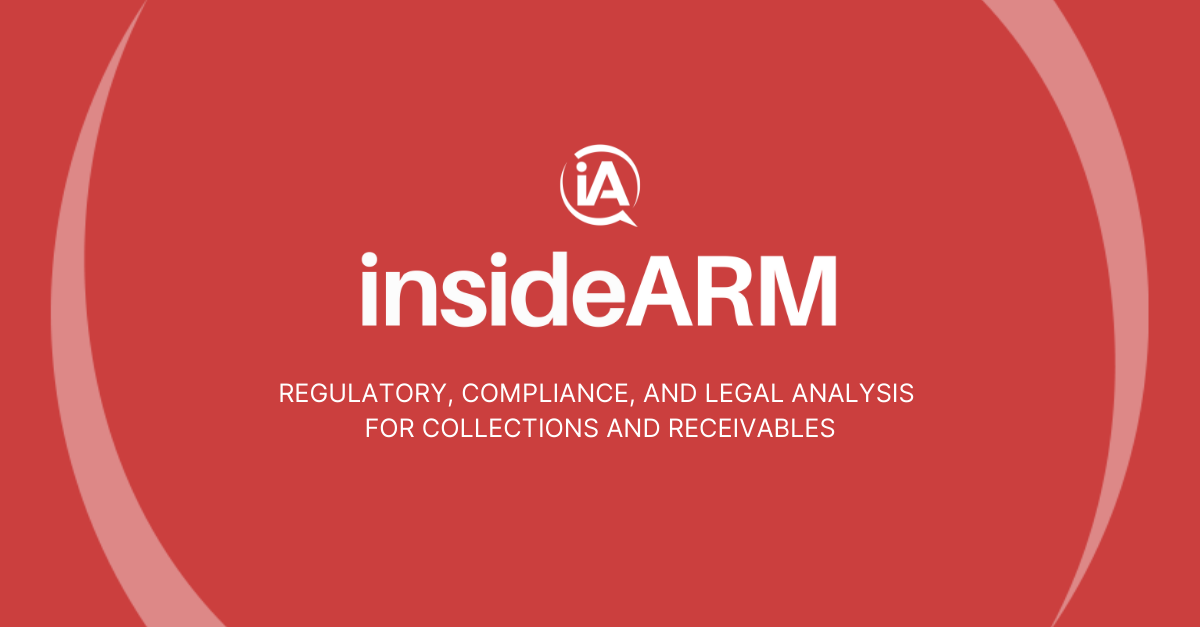This article was co-authored by Allyson B. Baker and Joseph Leonard Robbins. It originally appeared on Venable.com and is republished here with permission.
In an alleged national class action lawsuit against an online marketplace lender and its banking partner, Bethune v. LendingClub Corp., et al.A federal judge in the Southern District of New York recently granted the defendants’ motion to compel arbitration and bar class actions.
Plaintiff, a resident of New York, alleged that he received a private consumer loan from LendingClub Corporation (LendingClub) in June 2015 at 29.97% interest, in excess of the wear and tear limit of 16% from New York. He filed his class action lawsuit on behalf of similarly situated New Yorkers, as well as any U.S. persons or entities who received loans from the defendants at interest rates above their state’s usury limit.
The complaint alleged that LendingClub had used a “fictitious” banking partnership with WebBank – which is licensed in Utah where there is no usury law – to evade the usury limits of the home states of the borrowers. Specifically, the plaintiff alleged that LendingClub performed traditional lending functions, including soliciting and underwriting loans, but then tricked WebBank into funding the loans, only to transfer them to LendingClub two days later.
The complaint also demanded a jury trial. Defendants, however, decided to compel arbitration and bar class actions based on an arbitration clause and class action waiver in plaintiff’s loan agreements with LendingClub and WebBank. The claimant could have opted out of the arbitration clause within 30 days of accepting the agreement, but he did not exercise this right.
Instead, in court, he argued that the arbitration clause was “inadmissible” because it sought to enforce the laws of Utah (not New York, the plaintiff’s state of residence). and evade usury protections available under New York law. Ultimately, Judge Naomi Reice Buchwald found that because the plaintiff was really challenging the choice of law provision for the entire contract (rather than the arbitration provision specifically), an arbitrator (and not the Court ) must determine contract validity and arbitrability. of the dispute. The Court further enforced the contract’s class action waiver providing that “no arbitration shall be conducted on a class, representative, or collective basis.”
Bethune is important for two main reasons. First, it demonstrates that arbitration clauses remain a powerful tool to avoid public litigation and potentially reduce litigation costs. Second, it illustrates the impact that the arbitration rule proposed by the CFPB will have if it is finalized and if it withstands legal and legislative challenges.
Under the proposed rule, lenders will not be able to rely on borrowers’ failure to exercise an opt-out clause in arbitration, as defendants did in Bethune. Indeed, the proposed rule prohibits lenders from using arbitration clauses to prevent consumers from filing or participating in class action lawsuits.
The comment period on the proposed arbitration rule ended on August 22, 2016. If the rule is finalized, compliance will be required within 211 days of final posting. However, it’s unclear when, or even if, the CFPB will finalize the rule for a variety of reasons, including resolving CFPB v. PHH Corp. who is waiting bench examination before the DC circuit. In addition, the Congressional Review Act may allow Congressional Republicans to override a final arbitration rule and prevent its reissuance unless authorized by a newly enacted law.
Regardless of whether the CFPB’s proposed arbitration rule is finally finalized, lenders should keep in mind what consumer arbitration clauses cannot do: protect against government enforcement action. Two recent cases involving “genuine lender” allegations such as Bethune are illustrative.
The Georgia Attorney General announced this month a $40 million settlement with online payday lender CashCall, Inc. and affiliated parties. The attorney general had alleged that the defendants were charging Georgians illegally high interest rates and that the real lender was not entitled to tribal immunity from the state law’s prohibitions on loan sharking. In a separate case, the Pennsylvania Attorney General recently denied online payday lender Think Finance, Inc.’s motion to dismiss and defend against bank preemption. To seeCommonwealth of Pennsylvania v Think Finance, Inc. (EDPa.). The court ruled that the attorney general had sufficiently alleged that Think Finance, Inc., and not its banking partner, was the “real lender.”
Online lenders and banking partners should be careful to structure their relationships with the execution risk of the “real lender” in mind. To see here for more analysis on “true lender” issues and stay tuned for additional coverage of the CFPB’s proposed arbitration rule.

